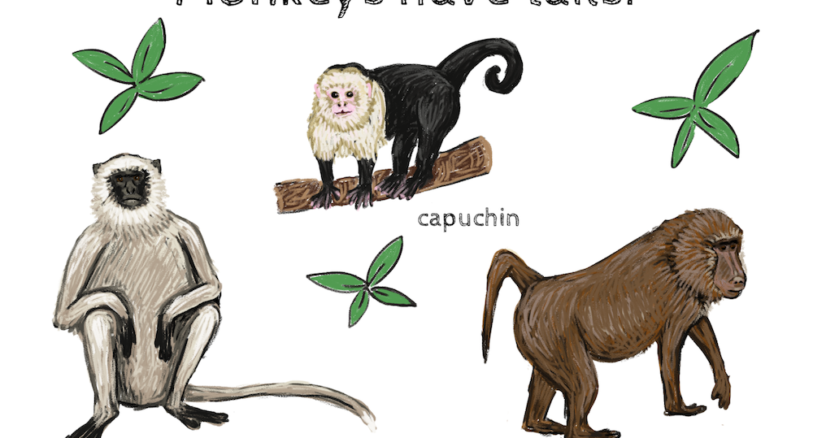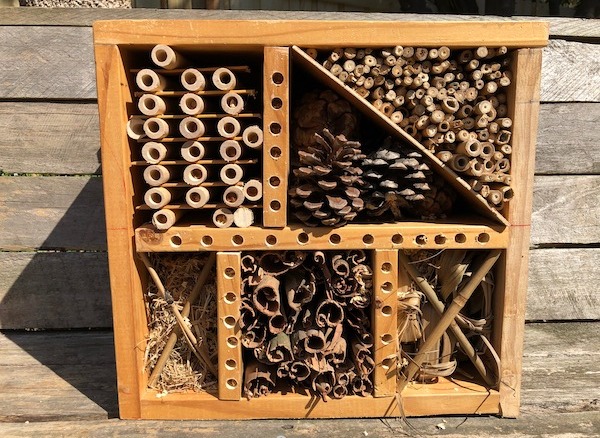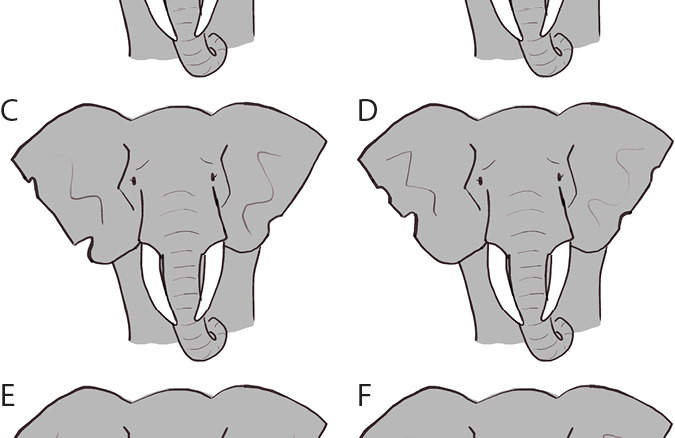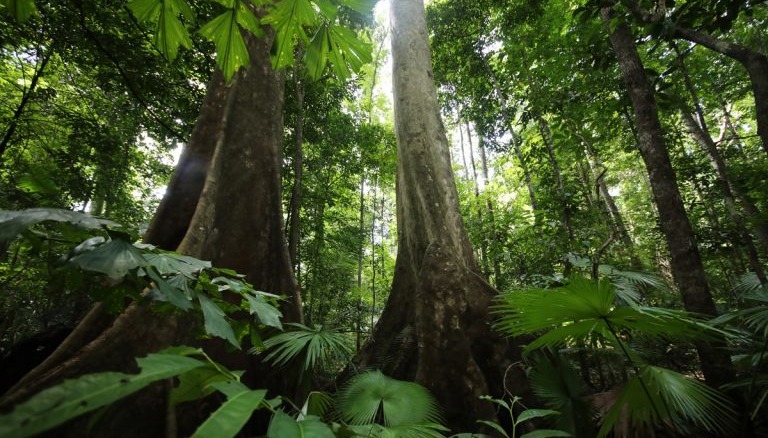We like stuff
We need some stuff for our modern lives: stuff like bicycles, furniture, toys, and electronic devices. Making stuff uses natural resources (such as wood, oil, metals, water) and energy. After we make stuff, we use more energy to transport the stuff to shops and then to our homes. We use the stuff and we enjoy it. But what happens to our stuff when we are done with it?
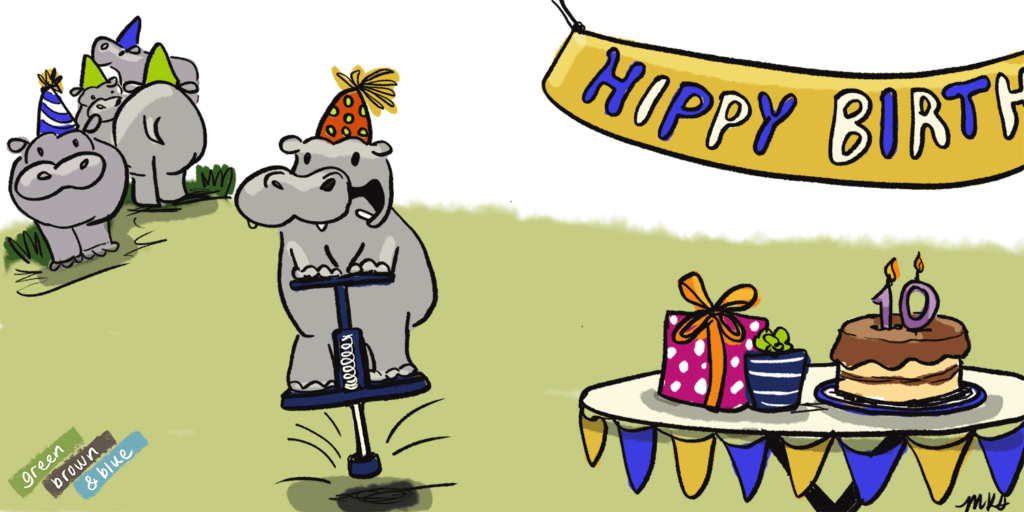
Some stuff is biodegradable: it breaks down in nature and we can compost it (this is good). Some stuff we give to others who can use it (this is good). Some stuff we find a new use for (how creative). Some stuff we throw away, some stuff we burn (this is not so good). And some stuff we can recycle (like some plastics, metals, paper, and glass).
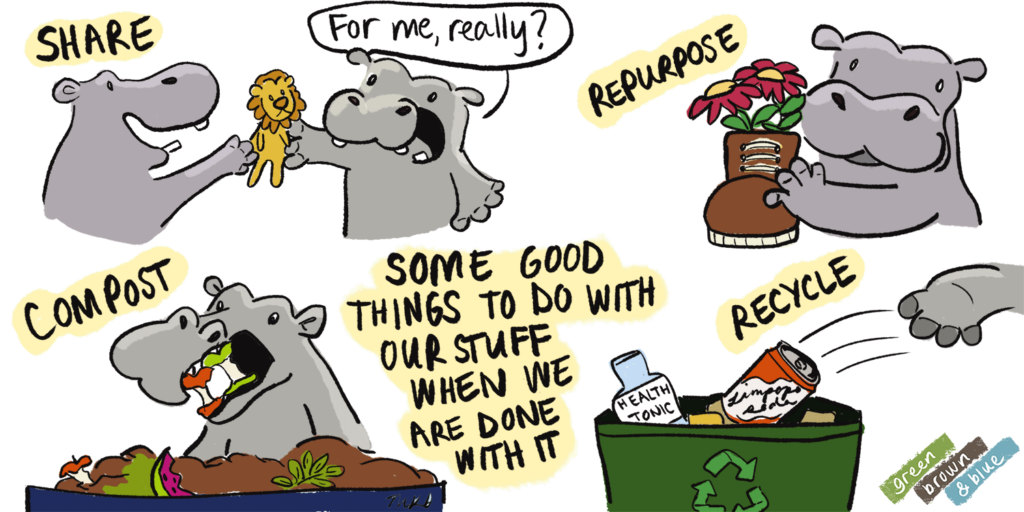
Recyclable materials are things that can be collected and turned into new stuff. Glass bottles can be turned into new glass bottles. Plastic bottles can be turned into fuzzy fleece jackets or new toys. Metal cans can be turned into new metal cans or into car and airplane parts.
Unfortunately, only a small amount of stuff actually goes on to become new stuff. One reason for this is that a lot of recyclable stuff ends up in landfills instead of being recycled. To help our planet, one easy thing each of us can do is recycle our recyclable stuff.
Did you know? Not all plastic is recyclable. In the USA, only about 5% of plastic waste is actually recycled. Most plastic waste ends up in a landfill. There is also a limit to how many times plastic can be recycled before it degrades. Glass and metal on the other hand can be recycled over and over again.
Do we really need all this stuff?
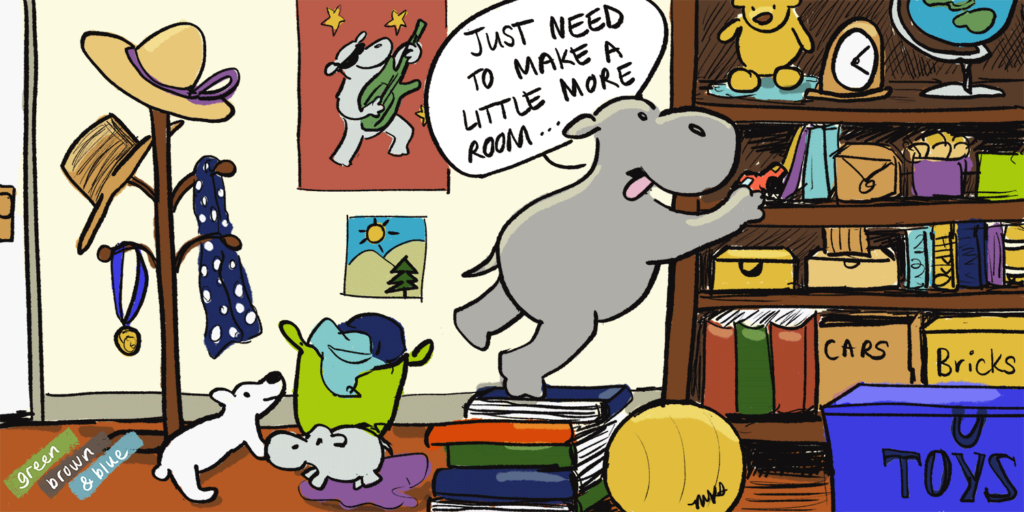
Another even more important thing we can do to help Earth is to think carefully about the stuff we buy. Is there some stuff we don’t actually need? (Like a single-use bottle of water or that straw with our milkshake.) Is there recycled stuff we could buy instead? Could we replace some of our stuff with biodegradable stuff? (Yes, please!)
Making good choices about what we buy and how we dispose of it helps keep our environment clean and healthy.
Take action: Reduce, reuse, recycle, and more!
Here are some steps you can take help care for our planet:
- Reduce: Try to create the least waste you can. Think twice before you buy and don’t buy more than you can use. Refuse what you don’t need. Carrying a reusable water bottle helps reduce the need for single-use bottles.
- Reuse: Use things more than once. Or give something old a new life. This is called repurposing. For example, create a planter out of an old wheelbarrow or bathtub or an old shoe. If you no longer need something, maybe you can give it to a friend, neighbor, or donate it.
- Recycle: Recycle all your recyclables! Follow local recycling rules for cleaning and sorting recyclables – this helps make the biggest impact.
- Organize a cleanup: Gather friends and family to clean up a local park or your school grounds. Sort what you find and recycle what you can.
- Educate yourself: Tour your local recycling factory to learn more about what they do. Or, read about the latest scientific advances in recycling and waste management. Learn about what it means to have a circular economy.
- Educate others: Create a poster or an awareness campaign to teach your parents, relatives, friends, and neighbors about good recycling habits.
- Campaign: Write to manufacturers, government representatives, and waste management companies to ask them for improved recycling rates and to minimize waste.
Recycling-themed art activities
Here are some ideas for art with a recycling theme:
- Create a collage of a futuristic city out of recycled paper, plastics, and other materials.
- Create a comic strip about recycling: Can you think of a funny story with a recycling theme? Are the characters humans or animals?
- Collect toilet paper tubes and turn them into a rainforest.
Resources for carers & educators
- Recycle City: Visit this fun, interactive website from the U.S. Environmental Protection Agency (EPA) where kids can explore recycling and waste management in a virtual city.
- Reduce, reuse, recycle resources from the EPA. The EPA also has resources for America Recycles Day (November 15) and you can learn about the basics of a circular economy.
- Learn about Global Recycling Day (March 18) and check out the educator resource page from the Global Recycling Foundation.
- Check your plastic footprint with this online calculator.
- Interview with a recycling program educator from NASA Climate Kids.
- Teacher resources on recycling from Kids Discover.
References
Milbrandt, Anelia, Coney, Kamyria, Badgett, Alex, & Beckham, Gregg T. Quantification and evaluation of plastic waste in the United States. United States. https://doi.org/10.1016/j.resconrec.2022.106363
https://www.epa.gov/circulareconomy/america-recycles-day
https://www.theguardian.com/us-news/2022/may/04/us-recycling-plastic-waste
*Mongabay Kids is not responsible for content published on external sites.

